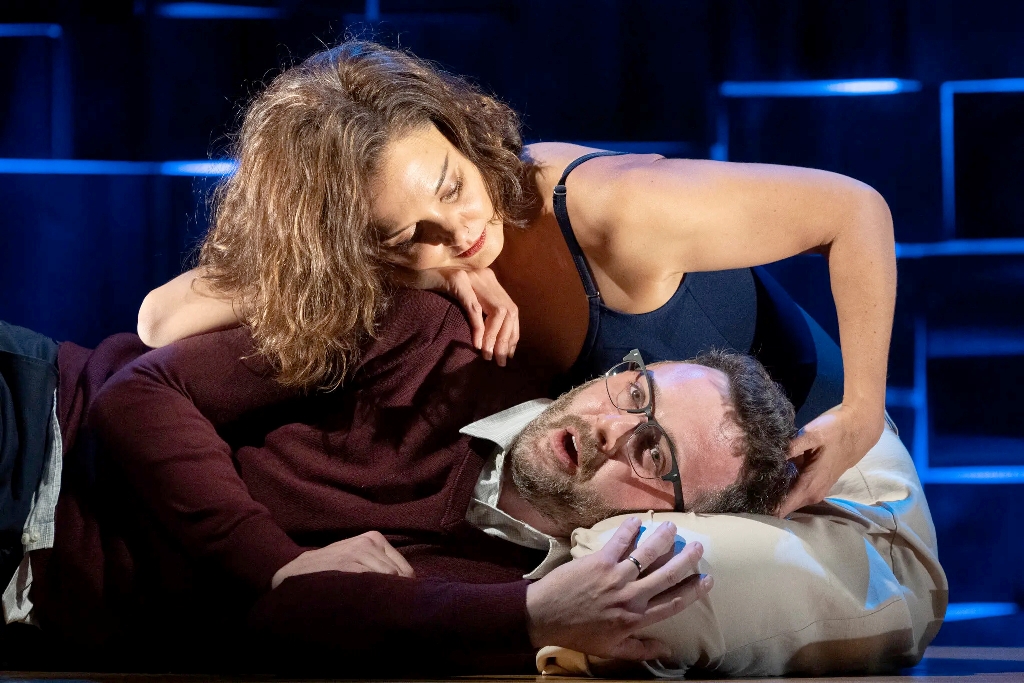THE WANDERERS
by Anna Ziegler
Directed by Barry Edelstein
A Production of the Roundabout Theatre Company
at the Laura Pels Theatre
Reviewed by David Spencer
Gosh, I’m not sure what to make of The Wanderers by Anna Ziegler, the Roundabout’s latest off-Broadway venture at their midtown Laura Pels space. A multi-generational story set in NYC, told in parallel threads, it gives us Esther (Lucy Freyer) and Schmuli (Dave Klasko), an Orthodox Jewish married couple…and a non-religious mostly-Jewish married couple (she’s half), both novelists, Sophie (Sarah Cooper) and Abe (Eddie Kaye Thomas). Abe is the son of Esther and Schmuli, and the one with the more consistent and successful career. Sophie put hers on hold after her first book was poorly received.
All four want something more from life and from each other. With Abe, this even extends to an email correspondence with the renowned, married movie star of about his age, Julia Cheever (Katie Holmes), who attended one of his bookstore readings. With whom he is unabashedly infatuated. And how can that possibly end well?
Though right at the top of the play, in what will be the only aside to the audience, Sophie tells us about how she met and fell for Abe, knew almost right away that she would marry him; and knew at the age of 40 that she would leave him. Not that she has the moral high ground of an unwitting bystander.
For the play also examines the secret lives people may have; not so much the betrayals of deed, but the wanderings of the mind that may or may not be betrayals of thought. Until thought and deed become inseparable.
Under the direction of Barry Edelstein, the play is well-acted—if a shade too often reminding one (me, anyway) of watching actors at work. And I found myself getting impatient with some of it—particularly because Abe’s self-indulgence and self-pity gradually take over…and while there turns out to be some structural justification for this, you can’t experience its validity retroactively, only understand it retroactively.
But I was never bored by The Wanderers. And I think that when a play hits you in a disquieting manner, one perhaps idiosyncratic to your sensibility, nonetheless manages to keep you engaged—and the delivery system of its production abets the engagement—maybe the fairest appraisal one can give of the play is that it did, to judge it no further, and to tell others who may get more out of it that it’s probably worth their seeing for themselves.
Consider it done.
I feel duty bound to add—after I finished writing this review, I had a medical appointment. The doctor, a renowned specialist—Jewish, upper-middle aged—upon learning that I work in the theatre, suddenly began waxing euphoric over The Wanderers, which he had seen just that past weekend. The play’s cultural milieux resonated with him, and the unpretentious simplicity of its language weaved a transporting spell for him. As he spoke, his assistant looked up some of the particulars of the play on her smartphone. She seemed interested. And the doctor said, “I’ll get you tickets, but you have to promise to go see it.”
His experience doesn’t jibe with mine…but, proving my review’s conclusion, it’s certainly one you should know about.
